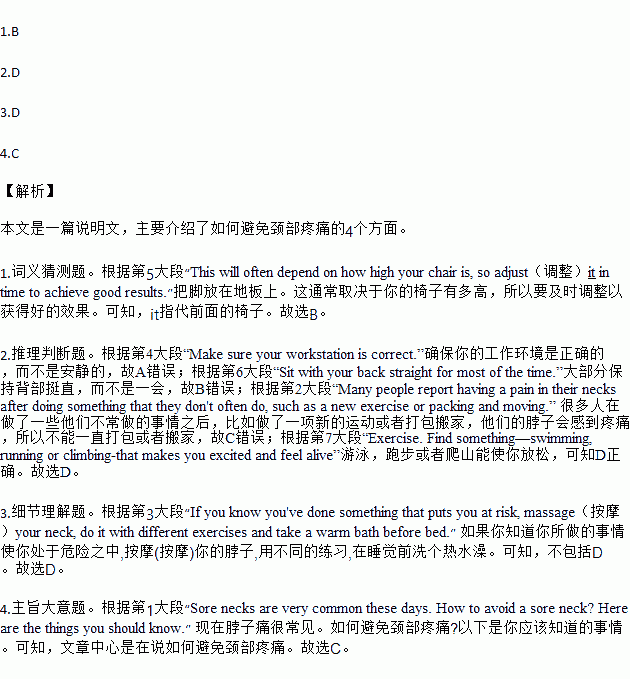题目内容
Sore necks are very common these days. How to avoid a sore neck? Here are the things you should know.
• Take precautions(预防措施)after an unusual activity. Many people report having a pain in their necks after doing something that they don't often do, such as a new exercise or packing and moving.
If you know you've done something that puts you at risk, massage(按摩)your neck, do it with different exercises and take a warm bath before bed.
• Make sure your workstation is correct. If you work long hours at a desk, you may want to make sure that your work environment is set up to be the most relaxing Make sure that your body is being treated right.
Keep your feet on the floor. This will often depend on how high your chair is, so adjust(调整)it in time to achieve good results.
• Change your posture often. Sitting in one position for long periods of time is not healthy. Sit with your back straight for most of the time. Take a 5-minute break if you can and walk around every hour.
• Exercise. Find something—swimming, running or climbing-that makes you excited and feel alive. Make it into a usual way. Your body will feel better and your mind will feel more relaxed.
1.In Paragraph 5,the underlined word "it" refers to(指) .
A.the desk B.the chair C.your neck D.your body
2. can avoid a sore neck according to the passage.
A.Making your work environment be quiet B.Sitting with back straight for a moment
C.Packing and moving for a long time D.Exercising often like swimming or running
3.After doing something unusual, you may do the following things except
A.doing it with different exercises B.massaging your neck
C.taking a warm bath before bed D.looking at your phone for too long
4.This passage mainly tells us
A.how to do exercise well B.exercising often is good for people
C.how to avoid a sore neck D.being healthy is the most important
 阅读快车系列答案
阅读快车系列答案

